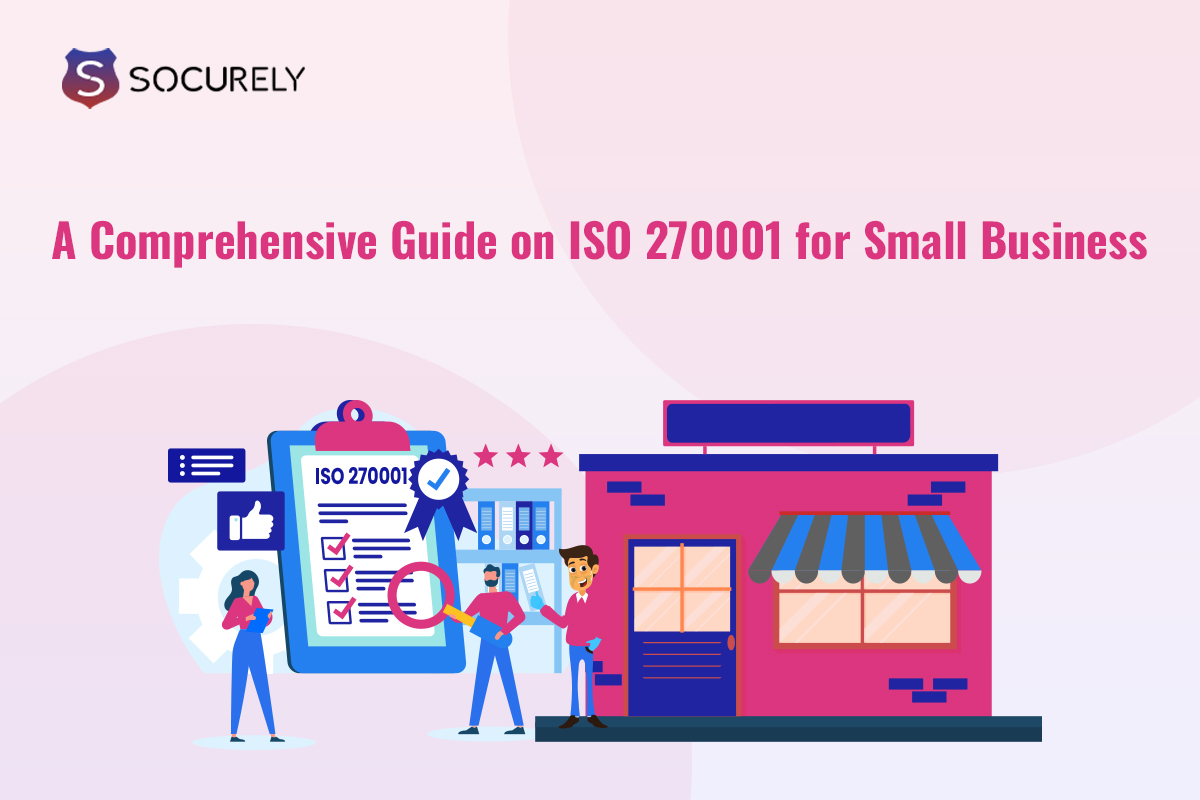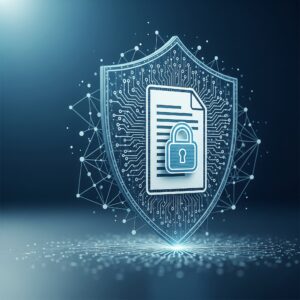Imagine your small business as a marketplace where customers come and go for data and information exchange. But what will happen if a thief lurks in the shadows, waiting to snatch valuable data? In today’s digital age, this thief isn’t a shadowy figure but a cyber threat – a constant concern for businesses of all sizes!
Here’s where ISO 27001 compliance steps in. This internationally recognized standard provides a framework for businesses to implement an Information Security Management System (ISMS).
Think of it as a comprehensive security strategy for your information assets, the lifeblood of your marketplace. ISO 27001 for small businesses can be the key to building a robust defense against cyberattacks, boosting client confidence, and achieving long-term success. Explore this super-smart digital security shield in detail in the upcoming segment.
Requirements for ISO 27001 for small business
ISO 27001 compliance describes a series of clauses, essentially the building blocks of your information security system. Understanding these clauses allows you to tailor your ISMS to your specific needs. Let’s explore some key aspects:
Context of the Organization This involves defining what information you need to protect and understanding the security risks you face. Imagine conducting a security audit of your marketplace, identifying vulnerable areas.
Leadership: Management buy-in is crucial. Leaders need to actively champion information security, showing everyone it’s a top priority. Think of the king leading the charge to defend the castle walls!
Planning: In ISO 27001 for small businesses, it identifies potential threats, the best security controls to mitigate them, and how you’ll monitor their effectiveness. It’s like creating a detailed battle plan to protect your marketplace.
Support: Ensure your team has the resources and training they need to implement security measures effectively. Think of equipping your guards with the best armor and weapons.
Operation: The operation phase in ISO 27001 for small businesses includes the identification of risks, assessing their likelihood and impact, and then putting controls in place to mitigate them. Think of setting up watchtowers and having a plan to respond to any attacks.
Performance Evaluation: Regularly monitor your security system. Are your controls working? Do they need adjustments? Think of inspecting your defenses and making repairs as needed.
Improvement: The security landscape is constantly evolving. ISO 27001 compliance encourages you to continually improve your security posture to stay ahead of cyber threats.
know more about the ISO 27001 requirement in more detail.
Benefits of ISO 27001 for Small Businesses
Here’s a closer look at the benefits of ISO 27001 for small businesses:
- Enhanced Client Confidence: Earning ISO 27001 certification sends a powerful message. Clients know their data is protected by internationally recognized security standards, potentially leading to more contracts and increased revenue.
- Proactive Risk Management: By identifying and addressing security vulnerabilities before they become problems, you significantly reduce the risk of costly data breaches. Imagine patching up leaky roofs before a storm hits!
- Streamlined Operations: ISO 27001 provides a structured approach to information security, helping you organize and optimize your security practices. It translates to time and resource savings in the long run.
- Competitive Advantage: In a crowded marketplace, standing out is crucial. ISO 27001 compliance can be the differentiating factor that sets you apart from competitors, especially when vying for contracts that require robust security measures.
Building Your Security Shield: Implementing ISO 27001 for Small Businesses
Ready to transform your small business into a security powerhouse? Follow these tips.
- Assemble Your Team: Identify a champion within your company to spearhead the implementation process.
- Conduct a Risk Assessment: Understand your specific security vulnerabilities. What kind of data do you store? How vulnerable are your systems to attack? Imagine pinpointing the weak spots in your marketplace walls.
How Socurely Helps Small Businesses?
With Socurely, your journey towards ISO 27001 compliance certification becomes not just manageable, but efficient and effective.
Through our comprehensive platform, we streamline ISO 27001 compliance for small businesses, guiding you through each stage of the certification lifecycle with ease. From initial certification evaluations to surveillance audits and recertification assessments, Socurely’s expertise in ISO 27001 empowers you to navigate the complexities of compliance seamlessly.
With Socurely, building your Information Security Management System (ISMS) is a breeze. Access our library of expert-developed policies, customize them to suit your organization’s needs, and effortlessly publish them to your employees, all within our user-friendly platform.
But our support doesn’t stop there. Going beyond the myths we offer quick services that include automated cloud infrastructure scanning, vendor risk assessment management, and continuous compliance monitoring. With real-time alerts and seamless auditor evidence collection, you can rest assured that your compliance requirements are always up to date.
Incorporating Socurely into your compliance strategy means more than just meeting ISO 27001 compliance requirements—it means prioritizing security, efficiency, and peace of mind. So why wait? Join the ranks of businesses worldwide who trust Socurely for industry-leading ISO 27001 compliance solutions.
FAQs on ISO 27001 Certification for Small Businesses
From where to start?
To begin with ISO 27001 compliance implementation, start by assembling your team and following a six-step roadmap, which concludes with certification. This roadmap guides you through the process from inception to compliance.
Do I need Cyber Essentials if I have ISO 27001 for small business?
While both standards complement each other, ISO 27001 is more comprehensive and covers a broader range of areas than Cyber Essentials. However, if your business pursues government contracts, Cyber Essentials may be necessary alongside ISO 27001.
Does ISO 27001 certification expire?
Yes, ISO 27001 certification is valid for three years from the certification date. To maintain compliance, internal audits, risk management, and recertification processes must be conducted regularly.
What are the three main pillars of ISO 27001 compliance?
The three pillars of ISO 27001 are confidentiality, integrity, and availability (CIA). These principles ensure data security and protection against unauthorized access.
How do GDPR and ISO 27001 differ?
ISO 27001 compliance focuses on managing confidential information in a risk-based manner, while GDPR safeguards the personal data of EU and UK residents. Compliance with GDPR is mandatory for businesses dealing with such data.
Which industries have the requirements for ISO certification?
While ISO certification is beneficial for any business handling personal data, it is particularly useful for industries like IT, telecommunications, and finance, where data security is paramount.
What does the Statement of Applicability mean in ISO 27001?
The Statement of Applicability outlines Annex A controls necessary for mitigating information security risks for ISO 27001 certification. It also identifies excluded Annex A controls.
Does my company need ISO 27001?
ISO 27001 certification may be necessary if your business operates internationally or if clients seek proof of adherence to globally recognized security standards. It’s especially relevant if your work extends beyond North America.







